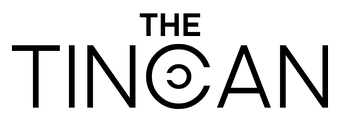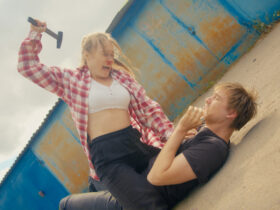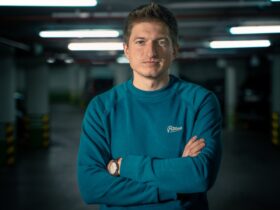- Was there a particular event or time that you recognized that filmmaking is your way of telling stories?
I remember hiding behind the sofa when I was five, occasionally taking a peak at the velociraptors entering the kitchen in Jurassic Park. I was petrified and it felt like I was in there with them. I watched
that film over and over again, fascinated by the effects “simple” moving images had on me. I think it was a combination of that and going to the movies, sitting in the dark forgetting everything around you, just
surrendering yourself to the story – that really got me.
- Do you think it is essential to go to a film institute in order to become a successful filmmaker?
Not at all. Especially today where I feel like the popularity of attending a film institute is gradually decreasing. We are very fortunate to live in a time with lots of roads a filmmaker can travel, and sometimes I feel like it’s way cooler if you make a video on youtube and get a zillion views. However, that is not to say that a film school doesn’t provide opportunities. I believe it is an incredible place to make friends and team up with like-minded filmmakers. My time at NYU will stay with me forever, and I am
incredibly grateful for all the people that I’ve met, from all over the world.
- Is it harder to get started or to keep going? What was the particular thing that you had to conquer to do either?
Both. It’s so easy for me to come up with dumb excuses not to write or to just drop a drag. I am in a constant battle with negative thoughts and I keep having to remind myself that I just have to sit down and do it. I really don’t like what I write 90% of the time and that’s just a fact I have to fight.
- What was the most important lesson you had to learn that has had a positive effect on your film? How did that lesson happen?
I think a story keeps evolving. Although you have the script and you finally go out to shoot it, things change – even if it’s just tiny bits. The weather is not the way you imagined it, something is not working or on the contrary the actor comes up with an idea that improves the blocking. All these trivial
adjustments end up changing the bigger picture. Finally, you get to the editing room where the story can take even bigger turns. I think it’s important to always stay open and let the story itself be the ultimate
guide but still keep the initial spark or idea alive.
- What were the production realities from casting through editing that you had to accommodate? How did you navigate those compromises or surprises and still end up with a cohesive film?
I really like the idea of shooting as much as possible on location and I will try to keep it like that on projects in the future. However, that means much more logistical work and filmmaking is so much about organizing, planning and coordinating that it’s easy to lose yourself in it. If it weren’t for my producer Melanie Grams and Kristof Boegi I would still be trying to make this short film.
- What was the hardest artistic choice you made in the making of a film, at any stage in production?
I think for me, the toughest choices always arise in the editing room. I remember cutting out entire scenes from one of my shorts, even though we spent several days filming that scene. That was tough, but it just didn’t make any sense narratively.
- You are a collaborator. How have you discovered members of your team and how do you keep the relationship with them strong?
I think when one shares the same passion and has a similar taste it almost always comes naturally. After that, it’s important to trust each other creatively, stay open to each other’s ideas and have conversations
about them.
- What do audiences want? And is it the filmmaker’s role to worry about that?
Whether it’s a drama, horror, crime, sci-fi, narrative or not I think we are always looking for good, exciting and well told stories. In my opinion, it’s the filmmaker’s role to worry about what the audience will experience throughout the film. I’ve never really understood why a filmmaker would make a movie solely for their own delight.
- What role have film festivals played in your life so far? Why are they necessary? How do you get the most out of them?
I agree with the statement that a film isn’t a film until an audience sees it, and that can be tough with short films. I personally haven’t had much luck with festivals yet and sometimes feels like navigating a maze without an exit. I’ve heard stories with people whose careers were kickstarted by a festival and others who hasn’t gotten much out of them. However, festivals are important as they can provide an excellent platform and showcase films with critical social and global issues.
- Do you believe that a filmmaker should be original and fresh or he/she should stick to classic but safe cinema style?
I think that’s up to the individual artist and the story. Maybe a combination?





















